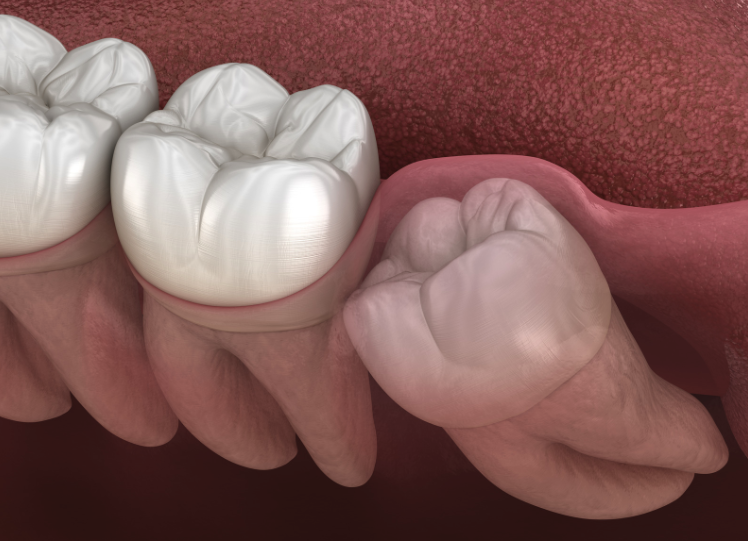
Wisdom teeth are the final molars to come into a person’s mouth. They usually start to emerge behind existing upper and lower molars between 17 and 21 years of age. In fact, they got their name because of this later emergence, when children are gaining wisdom as they mature into young adults! They are also known as “third molars.”
Some believe that wisdom teeth were critical to our ancestors who had to chew more raw leaves and greenery as well as coarser foods. Today, if a child has wisdom teeth, they generally cause more problems than not. Most people have wisdom teeth removed to prevent them from causing issues when they emerge or after they come in.
All About Wisdom Teeth
Wisdom teeth can cause some discomfort when they start to come in. Pain, redness, and some bleeding may occur as they emerge through the gums. They can make it uncomfortable to chew. By the time these new molars are emerging, teens will have forgotten how it felt to get new teeth, because the last time they got a new tooth was several years in the past. However, discomfort from wisdom teeth coming in is generally mild and treatable with over-the-counter topical numbing products and oral pain medications.
Some people have wisdom teeth and the space for them, while others don’t. If there isn’t enough room in the mouth, these new back molars can get stuck at an angle in the gumline or lodged against another tooth. Dentists call them impacted wisdom teeth. These can become a serious health issue, causing a great deal of pain.
Impacted wisdom teeth are very common, which is why many parents choose to have their child’s wisdom teeth removed. They can be extracted before they fully emerge, which can prevent impaction and all of the discomfort of those teeth coming through the gums. Your dentist can do an exam and take x-rays to discover the position of wisdom teeth in relation to permanent molars.
Know Your Wisdom Teeth
For a quick overview of wisdom teeth, watch this brief video from the American Dental Association.
Reasons for Removing Wisdom Teeth
Parents may be a bit nervous about making the decision about wisdom teeth. However, there are many reasons that support the removal of wisdom teeth.
- Most people don’t have enough room in their mouths for the extra teeth.
- Sometimes, wisdom teeth get stuck as they grow, causing an impacted tooth.
- Wisdom teeth are difficult to properly floss and brush.
- Wisdom teeth and the adjacent molars are more likely to get cavities because food can become lodged between these teeth.
- Wisdom teeth are prone to other issues, such as cysts and tumors.
- Braces and aligners fit better and will be more effective following wisdom teeth removal.
An extraction is a surgical procedure that involves anesthesia and numbing while the four wisdom teeth are removed. Incisions are made in the gums to access the teeth and any bone blocking access to the roots of the teeth. Once the wisdom teeth are removed, the dentist or oral surgeon usually stitches the wound closed, and then gauze is packed over the surgical sites to control bleeding and speed healing.
Recovery may involve pain management, rest and ice to control bleeding and swelling. The diet will include only soft foods for a day or two. Adolescents recover more quickly from this type of surgery, which is yet another reason it is performed while dental patients are young.
A child’s teeth experience quite a few changes over the years, from losing baby teeth to getting braces. Wisdom teeth represent a major milestone in dental development. Dr. Lenz and Dr. Mueller will perform a complete exam and present the options for a child’s wisdom teeth with you. Depending on your child’s other teeth and x-rays of wisdom teeth, extraction may be the best option for your son or daughter. Please contact us for an appointment to discuss your teen’s teeth and plans for maintaining their dental health.
